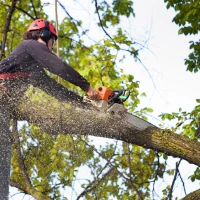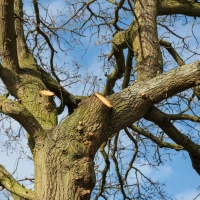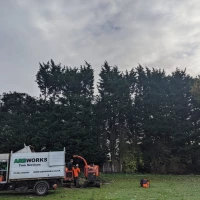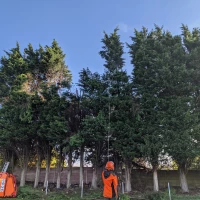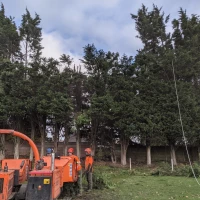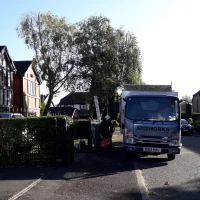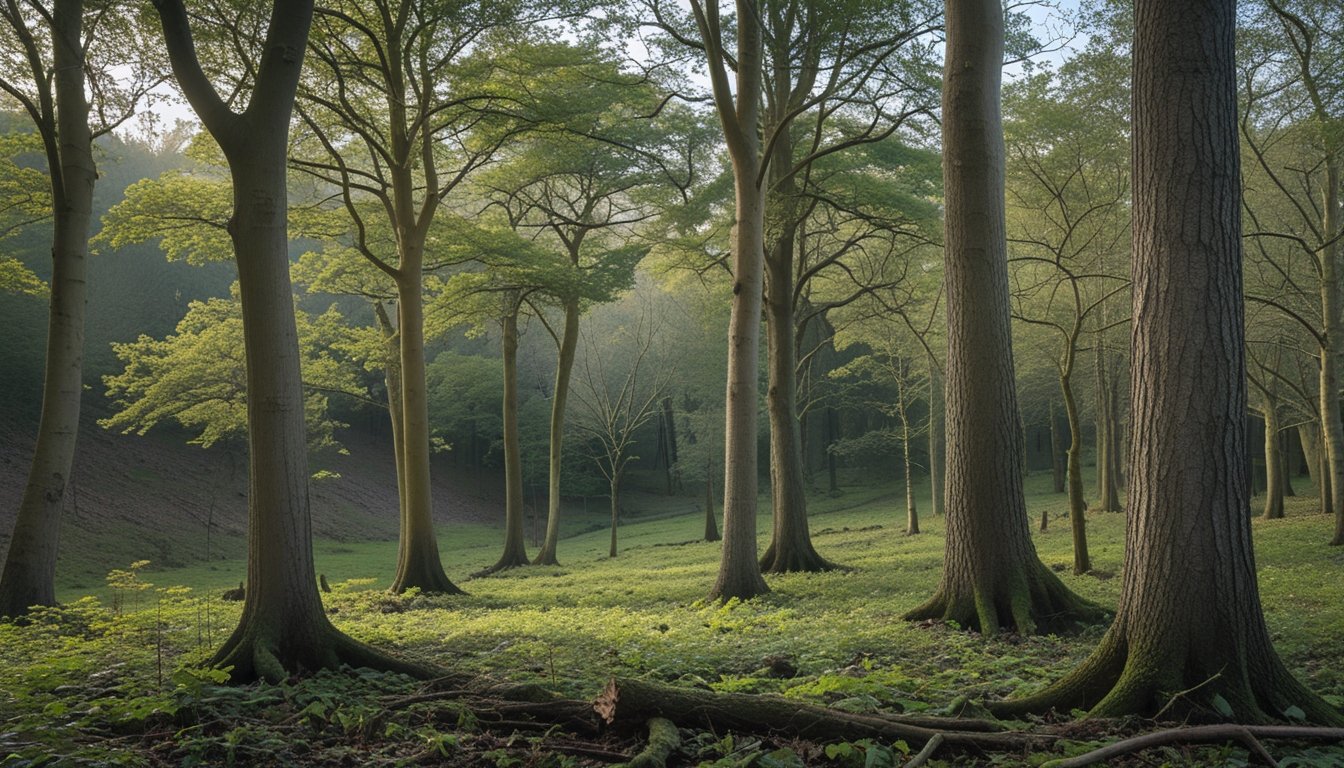
Exploring Native UK Tree Growth Patterns
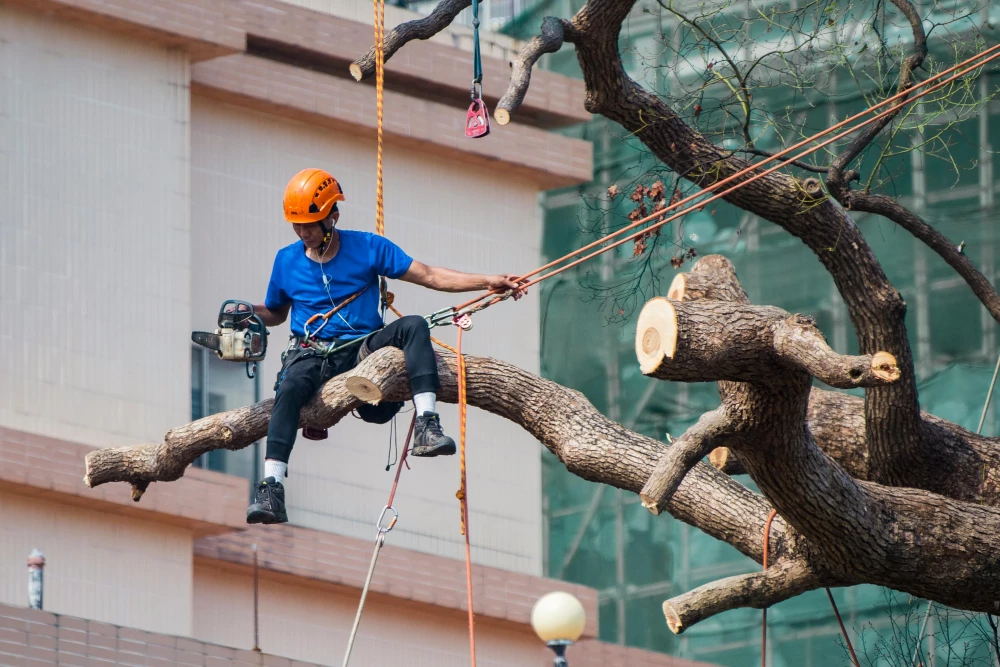
Tree removal is a crucial intervention aimed at addressing safety concerns and maintaining environmental balance in Higher Troswell.
It requires careful assessment and should be carried out by professionals adhering to the relevant regulations.
Professional Arborists play a pivotal role in tree removal in Higher Troswell. Their expertise in tree assessment, disease management, and risk mitigation ensures safe and efficient removal. They are trained to:
Diagnose and treat tree diseases.
Perform thorough risk assessments.
Execute removal with minimal environmental impact.
Professional arborists also navigate the complex array of regulations that protect urban and rural trees, often liaising with local councils in Higher Troswell to ensure legal compliance.
Tree Preservation Orders (TPOs) are legal protections placed on trees that contribute to local amenity and heritage in Higher Troswell. They dictate that:
Permission is required from local authorities before intervening with a protected tree.
Unauthorised work on a protected tree can lead to substantial fines.
There are also regulations that govern tree work in conservation areas in Higher Troswell, demanding that any planned removal is notified to the local planning authority in advance.
Tree Inspection is a critical first step that determines whether a tree should be removed. An arborist will consider:
Signs of disease, such as fungal growth or dying limbs.
Structural issues that put people or property at risk.
This holistic health and risk assessment guides the decision-making process, ensuring tree removal is conducted only when absolutely necessary for safety or environmental reasons in Higher Troswell.
When preparing for tree removal in Higher Troswell, it is crucial to ensure safe access and to employ strategic tree felling techniques. One must assess the type of tree and its surroundings for successful execution.
Access: The primary step is confirming unobstructed access to the tree for both workers and equipment. This includes identifying potential barriers and arranging for their removal if necessary.
Checklist for Access:
Clear path for workers and machinery
Evaluation of ground conditions to support heavy equipment
Provisions for public safety if the tree is in a residential area in Higher Troswell
Safety Guidelines: Adherence to safety protocols cannot be overstated. It involves a thorough risk assessment and wearing the correct protective gear.
Felling Strategies: The type of tree dictates the felling strategy employed. Factors such as the tree's size, shape, and location in Higher Troswell influence the decision-making process.
Tree Type | Felling Technique |
|---|---|
Small, Lean Trees | Winch-assisted felling |
Large Trees | Sectional dismantling |
Hazardous Trees | Controlled rigging |
The cost of tree removal can vary significantly in Higher Troswell, primarily depending on the tree's size, labour involved, and additional services such as stump and waste removal. It's important to understand these variables to effectively gauge overall expenses.
Size of the tree: The larger and taller the tree, the higher the cost to remove it. Small trees may only require simple tools and can often be removed in a shorter timeframe, while extra large trees necessitate specialised equipment and can take much longer.
Small trees (up to 25 feet): Approx £150 - £400
Medium trees (25 - 50 feet): Approx £450 - £750
Large trees (over 50 feet): Approx £800+
Labour cost: Labour costs are generally calculated on a per day or hourly basis, with the average rate for tree surgeons being £150-£200 per day in Higher Troswell.
Single tree surgeon rate: £150 - £200 per day
Team rate (including one or two general labourers): £300 - £400 per day
Stump removal: Removing a tree stump is a separate cost and is typically charged based on the stump's diameter, with prices starting around £50 for smaller stumps and going up depending on size and complexity in Higher Troswell.
Stump removal: Starting from approx £50 and up
Waste removal: Leftover branches and foliage need to be disposed of, resulting in additional waste removal charges. For large scale projects, waste removal may require hiring a skip or professional waste collection services in Higher Troswell.
After a tree has been felled, managing the remaining stump is crucial to maintain the health of the garden and prepare the area for any future use in Higher Troswell. There are several methods to remove a stump, each with its own merits, and preventing suckering and weed growth is critical to the success of these approaches.
Physical Stump Removal: This method involves the complete extraction of the stump and root system. It can be labour-intensive and typically includes digging around the stump and cutting through the roots before levering the stump out of the ground. For larger stumps, heavy equipment such as a stump grinder may be necessary. Stump grinders remove stumps by chipping away the wood with a rotating cutting disc.
Advantages: Immediate results; no suckering; allows immediate replanting
Disadvantages: Labour-intensive; may require expensive equipment or professional assistance
Chemical Stump Killer: A chemical approach involves applying a glyphosate herbicide directly to the stump. This method is less labour-intensive but requires more time since the chemical needs to degrade the stump slowly.
Best Practice: Apply the herbicide according to the manufacturer's instructions, typically involving drilling holes in the stump and filling them with the product.
Timeframe: Can take several weeks or months for the stump to break down completely.
Stump Grinding: This method uses a machine with a high-speed rotating blade to grind down the stump below ground level.
Depth: Up to 10cm below ground level is recommended.
Follow-Up: The resulting wood chippings can be used to fill the hole, leaving a level surface, or removed entirely.
Suckering: This is when new shoots arise from the remaining stump or roots. Adequate removal or treatment of the stump can prevent this problem. It is essential to ensure that complete stump or root removal is achieved, or if using a chemical treatment, that it is applied properly to prevent regrowth in Higher Troswell.
Weed Control: Weeds can quickly colonise the area around a tree stump. Regular monitoring and management, such as mulching or application of weed killers, can prevent weed establishment. If stump grinding was performed, the wood chippings can also act as a mulch to suppress weed growth.
After tree removal, it is imperative to address the leftover foliage and manage the tree's health to ensure a harmonious natural environment and the wellbeing of nearby plant life in Higher Troswell.
Once a tree has been removed, the surrounding foliage requires attention to prevent unanticipated growth and to maintain the aesthetics of the area.
The residual sawdust and small branches should be collected and disposed of properly. If the tree removal process included stump grinding, the remaining sawdust might alter the nitrogen balance in the soil, as sawdust decomposition requires substantial nitrogen.
It is recommended to either remove the sawdust or balance it with a nitrogen-rich fertiliser.
The health of trees remaining after one has been removed necessitates careful pruning to eliminate dead or diseased limbs, thereby enhancing overall tree health and preventing potential hazards.
Pruning should always be done with precision, using the appropriate tools and following safety guidelines, including the use of protective clothing.
The correct management of the tree ensures not only its prosperity but also the safety of the area where it grows.
Pruning:
Periodically inspect for necessary pruning.
Remove dead, crossing, or diseased branches promptly.
Use clean and sharp tools to make precise cuts.
Safety Measures:
Always wear protective clothing, such as gloves and safety glasses.
Avoid pruning near power lines or during adverse weather conditions.
Sawdust Management:
Remove or distribute the excess sawdust from stump grinding.
If retained, balance sawdust with nitrogen fertilisers to aid in soil recovery.
Tree removal - https://treemaster.uk/cornwall/higher-troswell
Hedge Trimming - https://treemaster.uk/hedge-trimming/cornwall/higher-troswell
Tree Felling - https://treemaster.uk/tree-felling/cornwall/higher-troswell
Site Clearance - https://treemaster.uk/site-clearance/cornwall/higher-troswell
Tree Planting - https://treemaster.uk/tree-planting/cornwall/higher-troswell
We cover Higher Troswell (Cornwall)
